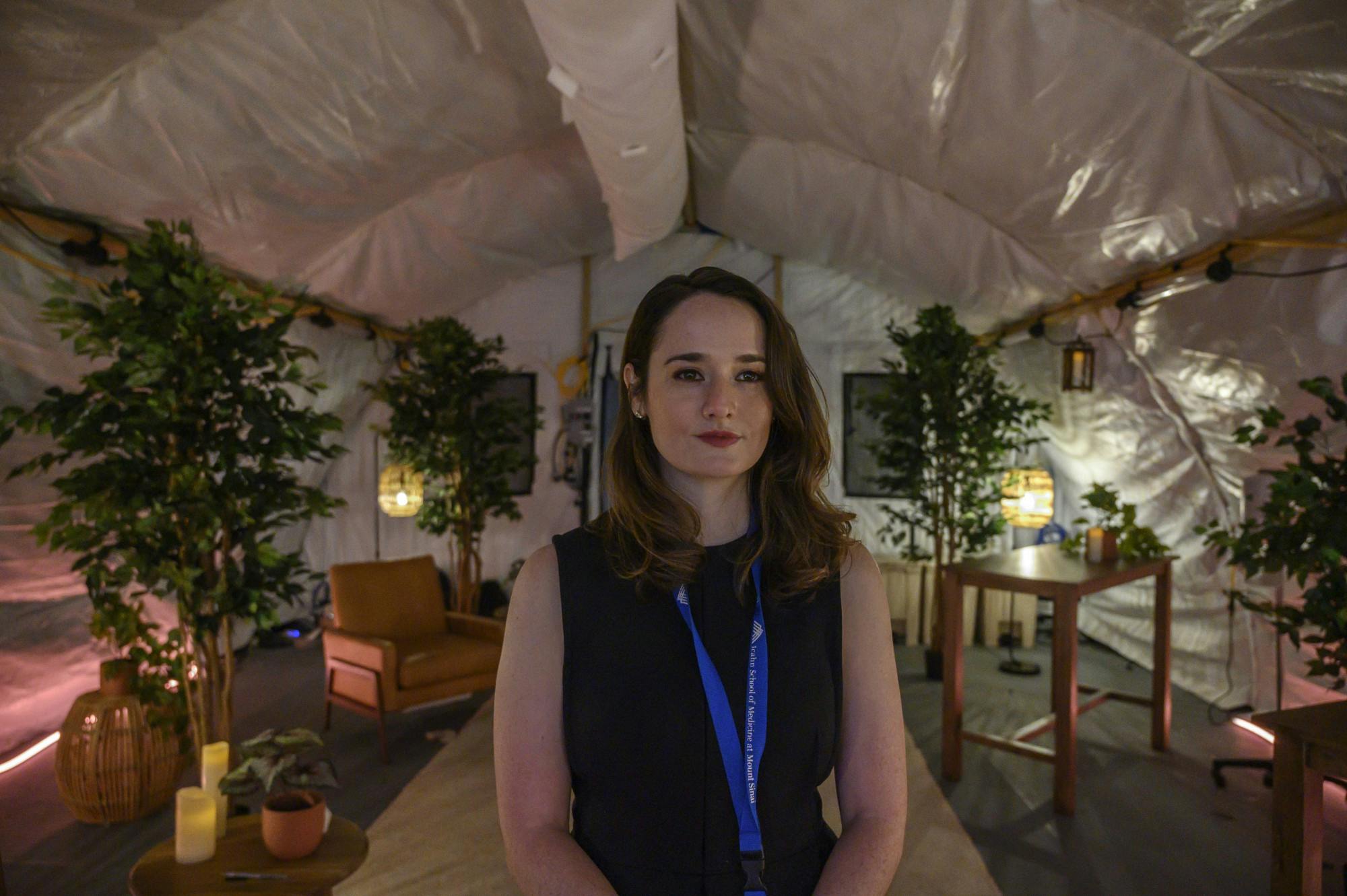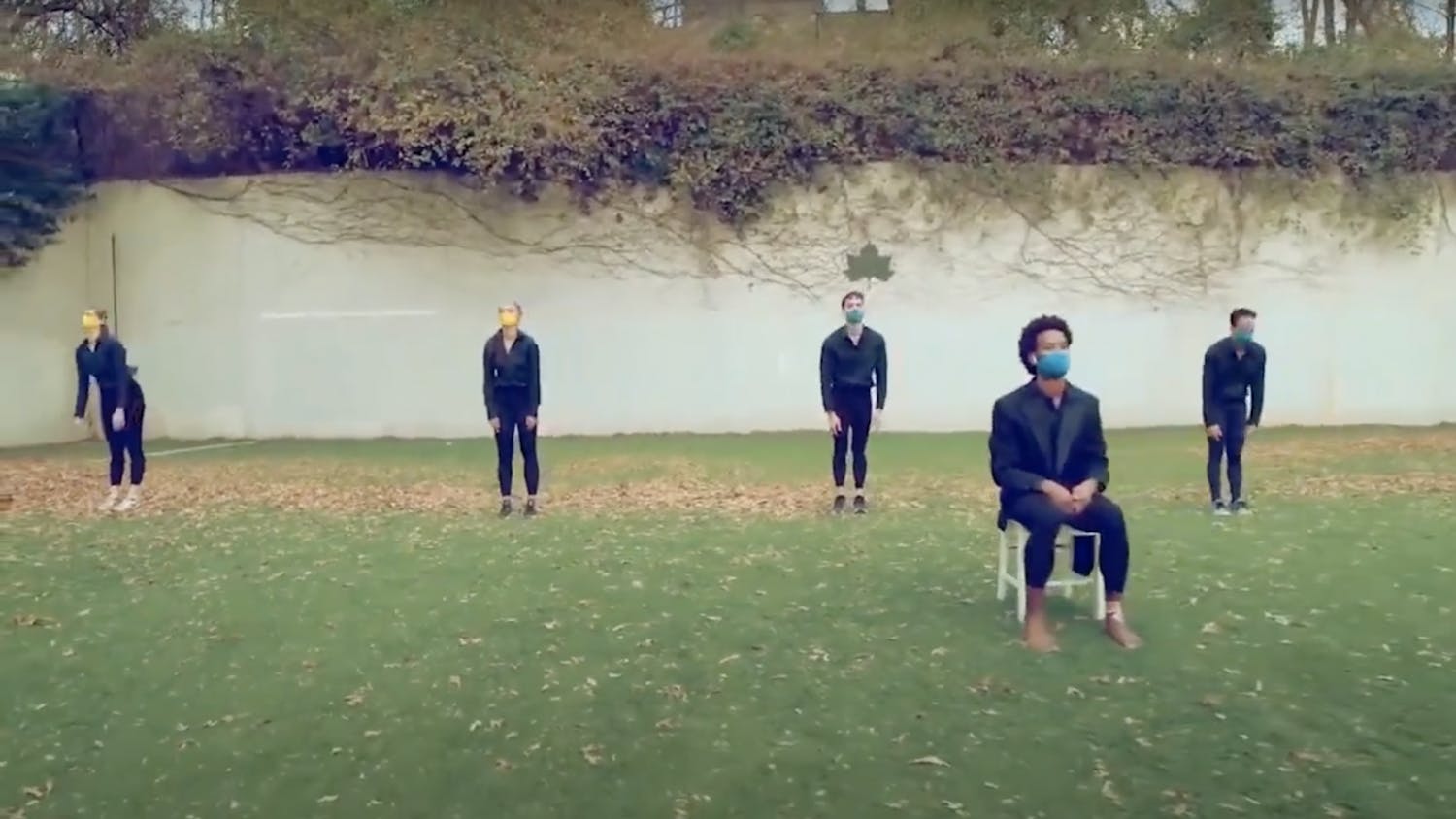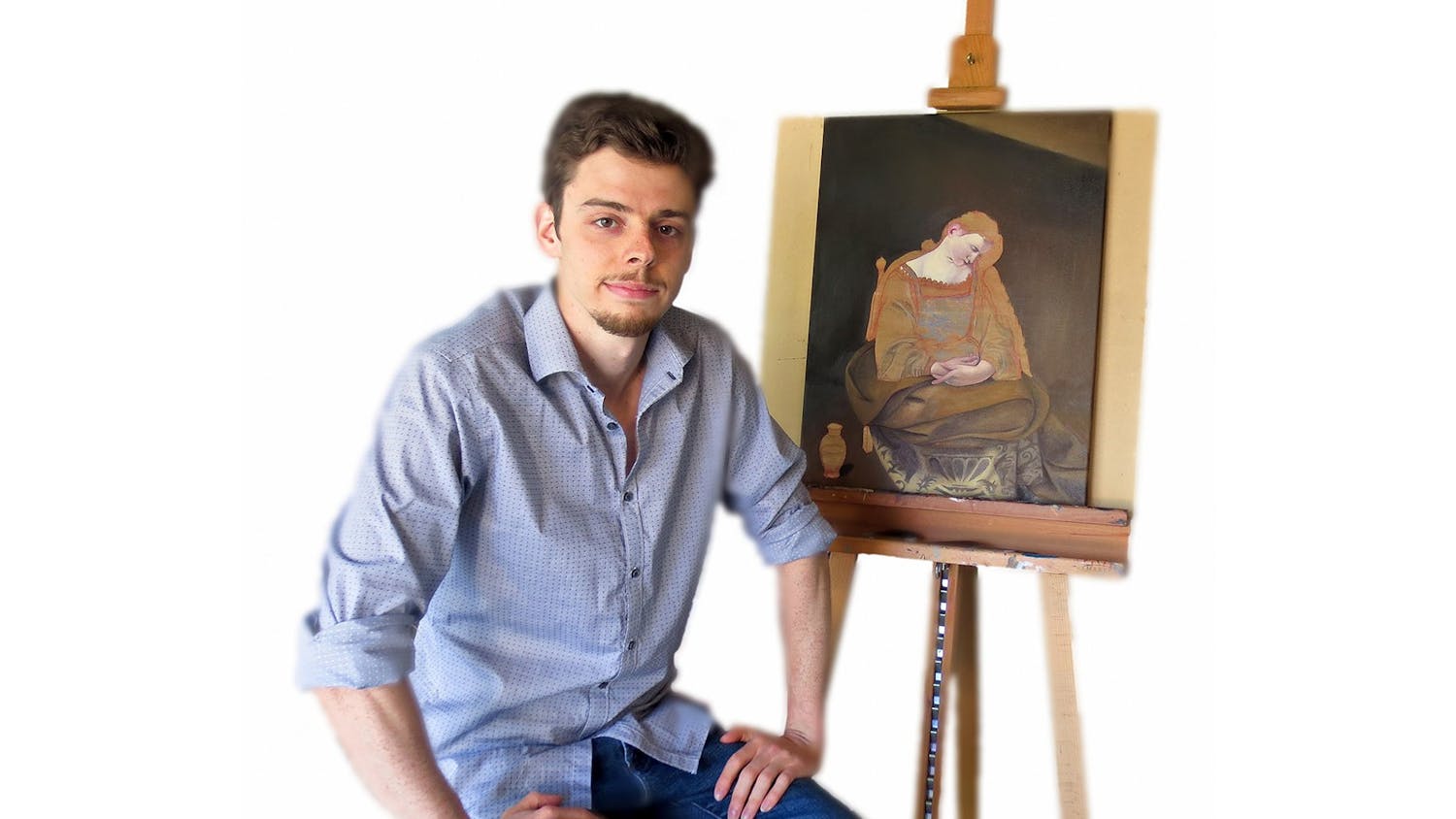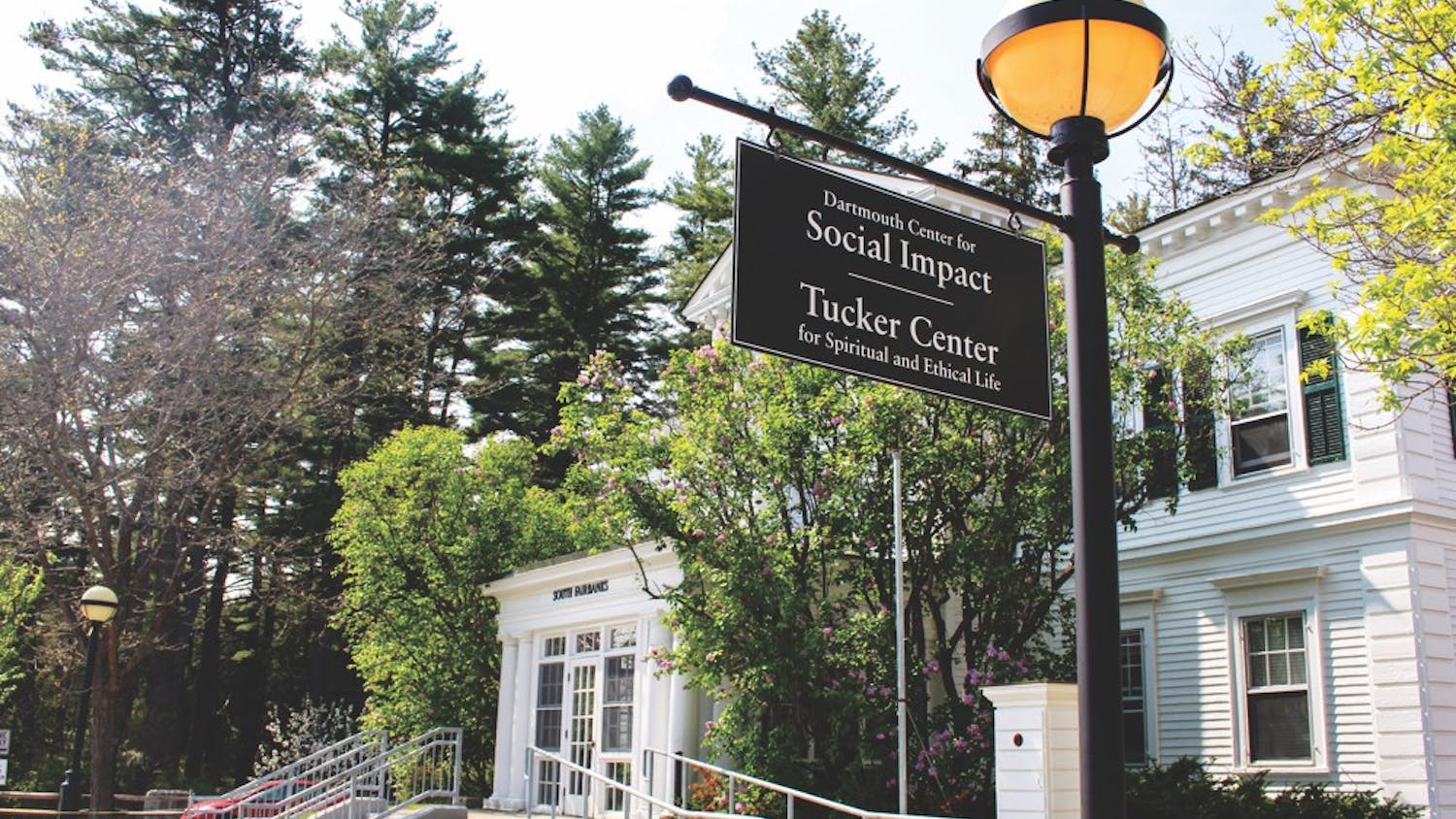Mirelle Phillips ’07 is the CEO and founder of Studio Elsewhere, a company that has collaborated with nearly 30 hospitals to install “recharge rooms” — spaces featuring relaxing music, scents, lighting and sounds — to help health care workers manage stress on the job.
Phillips sat down with The Dartmouth to discuss the mental toll of the pandemic on front-line health care workers and Studio Elsewhere’s work to combat the issue.
What inspired you to start Studio Elsewhere? Did you always know you wanted to use it to support front-line health care workers?
MP: I started Studio Elsewhere after coming from the video game industry and being really interested in the way that we can use immersive and emerging technology paired with physical design to achieve a more inclusive and imaginative experience of health care for when we're at our most vulnerable.
I had been a patient. I had gone through a neurotrauma. I knew what it was like to go in and out of hospitals and be confined. I got very interested in thinking about brain health and how the use of both physical and digital design could actually be helpful for our bodies to heal.
My first case was with stroke patients. I worked with the department of rehab and human performance at Mount Sinai Hospital in New York City and started developing immersive interactive environments for stroke patients and their caretakers that would use a combination of immersive biophilic design — bringing the outdoor world of nature into an indoor environment with interactive technology. While doing that, I saw one of the nurse’s lounges, which was a very sad looking space. These workers need to have resilience. They need to have empathy, and they are stretched as thin as possible. Burnout was an epidemic with health care workers prior to the pandemic; the pandemic just broke the camel's back entirely.
I presented the idea of what the recharge rooms could be back in 2019 and actually found an opportunity to start developing them for elite athletes who really wanted to use this cognitive restoration, so I started working with the Brooklyn Nets. When the pandemic happened, it was clear that this was a desperate need for health care workers. The second week of the pandemic, I started deploying the rooms at Mount Sinai in New York, and then it just kept deploying them from there onward.
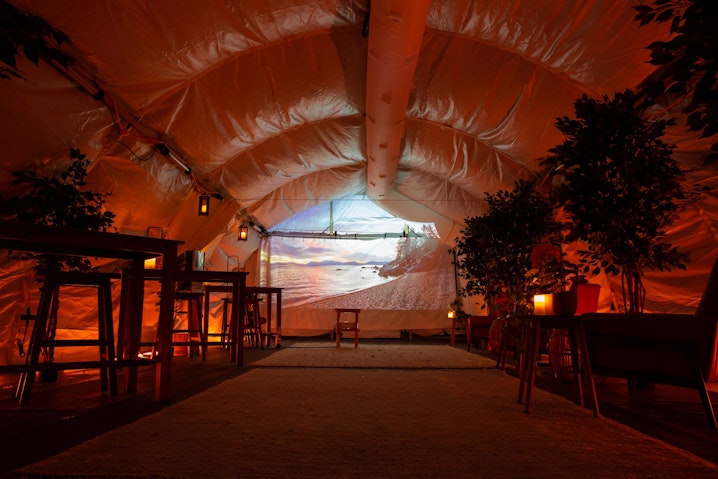
What are your priorities when designing the recharge rooms? How specifically do they address issues like trauma, anxiety and stress?
MP: We build these immersive environments that use a type of projection-based technology that's embedded within physical design. The recharge rooms are one output and are specifically for health care employees. We don't design anything in a vacuum; we are completely collaborative, and we're really co-creative with the communities. We had been doing this in the wild with health care workers, so we're getting their input in real time.
In the room, you have a projection that's using our own content in lighting and music for the experience. We're really targeting the prefrontal cortex, so it can release on the executive functioning and allow for something called “soft fascination,” which is something that happens in nature. When you're out in nature, your mind is able to just let go and have positive ruminations. We create environments that are forms of this refuge. There is scent, lighting and sounds, really to create the sense of a safe space that is experiential when trauma is happening. You are left with these moments of catharsis. It's pretty powerful.
I wanted to create that type of feeling when you're sitting on Adirondack chairs, looking at a beautiful vista with somebody. It's a very human experience and leads to spontaneous introductions. We really love it when we hear about new friendships that were formed over a recharge session at the beach.
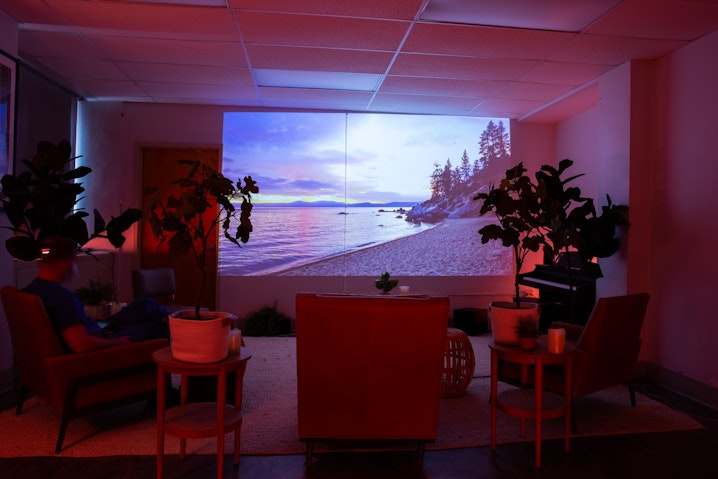
Do you think the recharge rooms have been a success?
MP: I've now sat in on over 1,000 sessions with different health care workers. We have seen well over 75,000 uses of the spaces. We're going to be in 30 hospitals as of the spring. We had a study that was published in Frontiers Psychology that showed that there was a 60% reduction in short-term stress of front-line workers after using the intervention.
There are also other metrics of success, like how we've managed to be able to bring an intervention in the middle of a pandemic into the heart of hospitals and get this out to those who can really use it. I think it's not just about the effectiveness but really about how this helps inspire cultural change in employee health and well-being culture. It's really about shifting the way that we care for caretakers.
What are the obstacles or limitations that you've encountered and how have you surmounted them?
MP: Everything. Working within hospitals in the middle of a pandemic is just all the red tape and challenges that one could do. Every day is a Rubik's Cube. We have actually managed to do this because we developed a modular kit of parts approach that is cosmetic. We're not coming in and remodeling a room. We're not trying to take an architectural approach, which would be time consuming and very resource- and cost-heavy. We developed a way of doing this without having to physically remodel the space but one that still feels unique and transformative. That has been the key for us to get things up quickly. We only know what it's like to work in like incredibly impossible conditions and how to just be agile and keep making things happen.
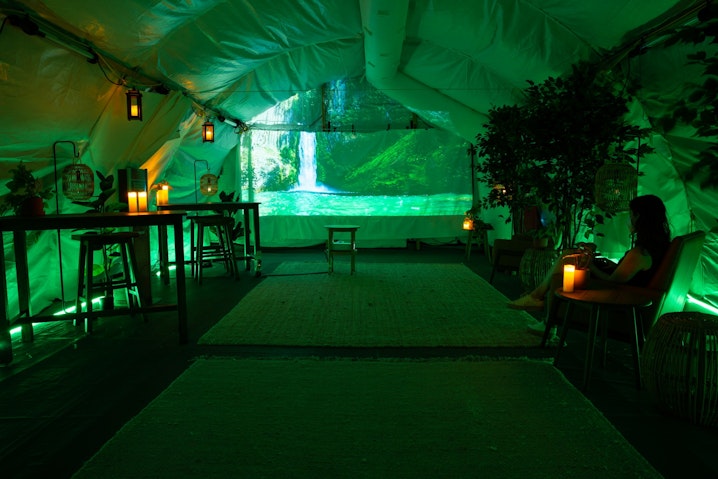
Studio Elsewhere emphasizes that its team has a diverse set of backgrounds and experiences. Could you describe that diversity and the ways in which it has impacted the performance of the company?
MP: We are very focused on equity. I am the daughter of a Mexican immigrant and am very much aware of inequalities. Being a woman and having a minority background is not something that is at all typically represented in tech companies. It was really important to me that who's at the table is also representative of the communities that we're serving and thinking about. We are, I think, 70% women and 60% people of color.
The team itself is designers, technologists, engineers, artists and scientists, and we work closely all together. We get to set up a company that looks different, is different and is led differently than other startups.
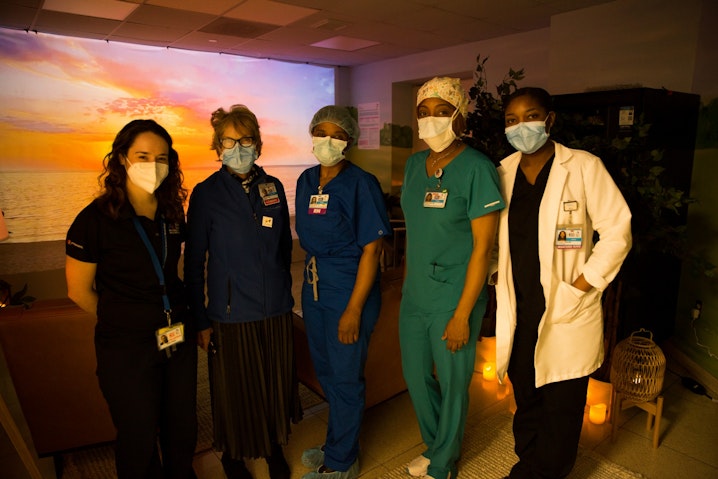
How did your experience at Dartmouth prepare you for your current role as the founder and CEO of Studio Elsewhere?
MP: The people helped form me while I was there. I came out of Dartmouth with a very close-knit group of female best friends that 100% have helped to develop and inspire me. It helped so much to be surrounded by friends whom I could have conversations about going to do some type of good and making a mark in the world.
I also came from a small retirement town in Florida, and Dartmouth was the first time that I was actually exposed to wilderness. The only wilderness I knew at that point was shopping malls and some beaches. I think being exposed to mountains and lakes and being part of the Dartmouth Outing Club and Ledyard allowed me to have these really formative adventures in nature that have since then become not only a passion, but a part of what I'm focused on.
This article has been edited and condensed for clarity and length.

